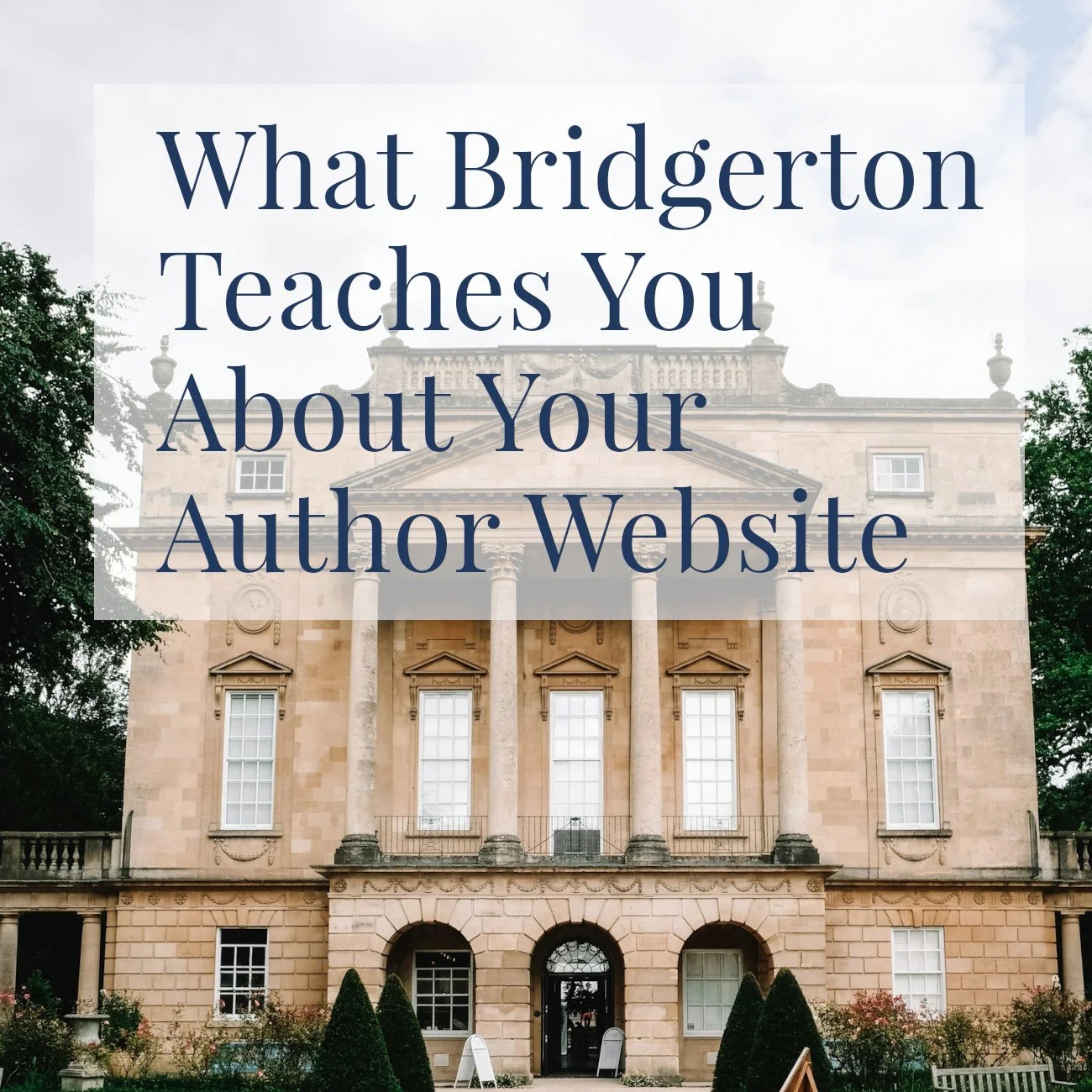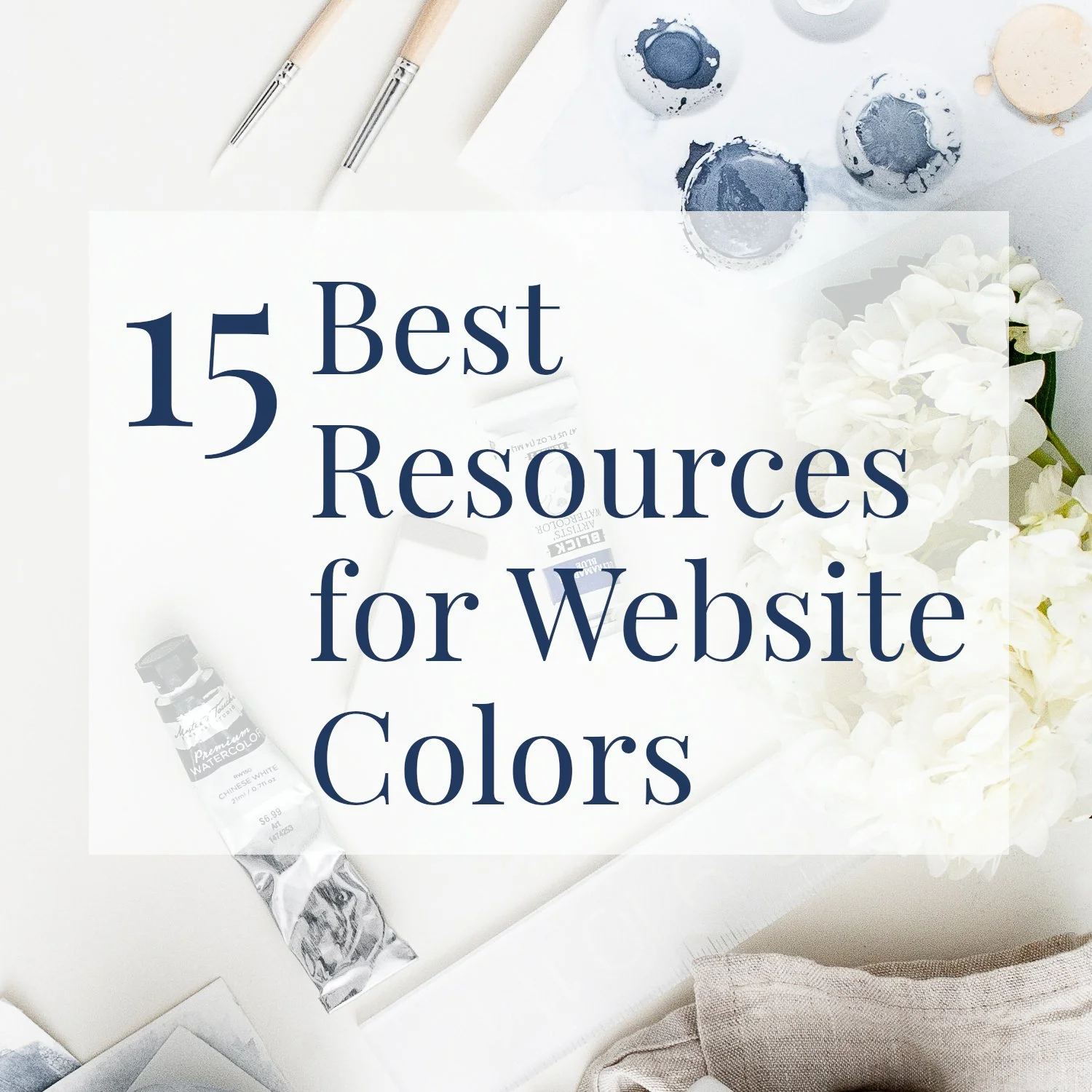Do Writers Still Need Websites?
• This article contains affiliate links •
There are so many ways to be present online these days, that you might wonder, does a writer or author still need a website?
In my line of work, I do have a strong opinion on this, but I see so many ugly and outdated author websites that presumably, not everyone feels the same!
So let me attempt to list the reasons against you having your own website, and then take a look at each of them in turn.
Reasons you might be tempted to skip having a writer website…
You have a (neglected?) website but have never understood the technical bits and pieces to make it behave
You’ve never seen a connection between your website and actual book sales
You love to engage with your audience on social media, and that seems to be where they’re hanging out in any case
You write articles for other publications, or LinkedIn, or Medium
A website is just another expense in your author business
You’re a new author, and a website is just one more thing on your never-ending list
Why an author or writer should still have a website
Let me now address each of these concerns. For all of them, there are valid reasons why you might feel that way. But, I hope to show you that it’s tactics, not the principle of a website, that are causing your discomfort.
1. If you’re technically challenged, can you just drop your author website?
If you are reasonably able to use email, conference calls, online classrooms, and other tools elsewhere in your life, then you can almost certainly get to grips with the basics of making simple updates to your author website. And if not, this is a huge clue that you’re on the wrong platform.
Years ago, WordPress was a good and logical choice for author websites. Indeed, around 2010 when I started my own writer site, it was the only reasonable DIY option for those of us with middling tech skills.
However, times have changed! I firmly believe WordPress is no longer your best and only option, especially if you don’t love tech. Understanding hosting, themes, plugins, widgets, pages and posts can be super confusing. And if you don’t also get your arms around security updates and backups, you’re in for a bumpy ride when a hacker targets your website.
If, on the other hand, you set up some simple web pages on an all-in-one provider like Carrd or Squarespace, then I passionately believe you can take care of basic edits yourself.
Yes, there is usually a learning curve. Like everything else in life, you won’t become a website diva in 15 minutes. And the reason I offer my expertise to clients is, if you want truly professional results, you must expect to either hire help, or invest significant time in learning the appropriate skills.
Related: Want the best author website? Don’t build it yourself.
2. How does an author know their website is actually selling books?
Hand on heart, often you don’t know there’s a direct connection between someone visiting your website and a sale of your book.
Your website, however, is an essential business tool that establishes you as a serious professional with good communication skills. If you don’t have one, you look flaky or uncommitted. If you have a sloppy, outdated, or all-about-you website, readers will assume your books are no good either.
“Authors and small publishers must have their own mobile-friendly, professional looking website—it is, by far, the most important element of a book marketing strategy.” ~ IngramSpark
Simply put, your website is your online home, your mission control, your hub, your brand flagship, and your showcase of who you are, what you write, and for whom.
But, unless you’ve put sophisticated tracking in place (and often not even then), you can’t draw a straight line from website visits to book revenue.
Having said all this, there are powerful tactics you can and should use on your website to increase the chances that a visitor either buys your book, or joins your email list, so you have future chances to tell them about your work.
Check this article to see those tactics listed out, together with further reading on why your website isn’t selling more books.
3. Can an author get by with only social media?
No. Not unless you want to build your house on borrowed land. Social media is notoriously fickle. Audience habits change, as do the algorithms that decide how many of your followers see what type of content. Years ago, authors were able to build a decent following on Facebook, for example, only to see their reach plummet when the algorithm changed. Overnight, it seemed, you had to pay to “boost” content before your audience would see it.
Meg Casebolt, CEO of Love at First Search and host of the Social Slowdown Podcast, says:
“If or when social media platforms change their algorithm, you are entirely at their mercy… I have friends who have lost thousands of followers when Instagram just shuts down their accounts without no notice. I know people whose launches have failed because Facebook thought that their chat bots were too spammy.”
Social media is certainly fun (for some of us!) to spend time on, and it’s pretty easy to use and to update. But never forget, you don’t own your audience there, and they can evaporate fast.
It’s much better instead to build your own email list of readers and fans, so that you have permission to contact them directly. Almost all mailing list providers let you create a basic “landing” page to gather email addresses, although I recommend you put this feature on your own website as soon as possible.
Related: How to choose your author newsletter platform
4. If an author writes articles for Medium or LinkedIn, do they still need a website?
A website: yes. A blog (on your own site), possibly not.
Plenty of my clients come to me and report that blogging has become a burden, something they’ve been told they “should” do, but an activity that no longer brings joy or results. If this is you, and particularly if you write fiction, I encourage you to release yourself from the obligation. Concentrate on publishing guest articles on other platforms (for the ready-made audiences there), instead of torturing yourself over ineffective pieces for your own blog.
I wrote much more about this here: 8 Things To Do Instead Of Blogging
Just don’t mix up having a “blog” with having a “website”. They’re slightly different things, and serve different purposes.
And even if you only have a handful of published articles or essays, your own website is the perfect place to create a writer portfolio so you can showcase your best pieces. Explore your options in this round up of examples of portfolio pages using Squarespace.
5. How to create an affordable author website
One of the reasons so many of us originally got started on WordPress was: we were told it was free. And yes, the core technology is free to use, that’s true. But then, to run a WordPress site, you need to buy hosting, and you might need to buy a (better) theme, plugins, and other enhancements. Most importantly, if you can’t all navigate this yourself, you might need to pay every time you need help. Website professionals based in the USA commonly charge $100 per hour, and more, to wade in when you need assistance. And if you pay for a monthly care package, your costs might be even higher.
Instead, if you want your website to be affordable in terms of time, stress, and money, make sure you’re using a platform that you understand. Even better if it’s an option like Squarespace, where free 24 x 7 support is included when you have a question.
If you want a professional quality website like the ones I build for my writer and author clients, then yes, an upfront investment is needed. Look at your business goals and the other reputational benefits a good website brings, in order to decide whether you should hire someone like me. More info on my design service is here.
But for your first website, or if your budget is firmly within Do It Yourself territory, then you still have excellent, reasonably priced options available.
My personal recommendation for a super low-budget author website is Carrd.co. If you keep your website simple, with just a few pages and no blog, you can purchase your domain name from somewhere like Google Domains for $12 per year, then add the Carrd Pro Plan for $19 per year. This gives you an annual outlay for your author website of just $31. There’s more info here on the reasons I recommend Carrd, and an article here to help you choose whether it’s right for you.
Related: How Much Does an Author Website Cost in 2023?
6. New authors should create a website as soon as possible
Don’t make the grave mistake of thinking you publish your book and then figure out how to market it. As soon as you have a solid first draft and a clear idea of your ideal audience, you can and should start building an early following for your work. This applies whether you’re an aspiring author or have a firm release date.
As a new author, you certainly have a lot to juggle, but a website is a foundational piece of your platform. It shows industry professionals that you’re serious and businesslike, and is the ideal place to begin to establish your author brand.
“In 2004, when I started, author platform was barely on our radar; by the time I left in 2012, it was the most important factor in determining whether or not we’d make an offer on a project.” ~ Brooke Warner, discussing book acquisition decisions for Seal Press.
See my tips above (part 5) on keeping your website simple and affordable. Even if you create just one basic web page, don’t skip setting up a website. By doing so, you honor both yourself and your writing.
Yes, an author still needs a website!
Let me leave you with some nuggets of wisdom from industry gurus:
“You need a stable place of your own on the internet. You need your own space, your own website, where everything happens, and then you see your social media as outposts.” ~ Orna Ross, Alliance of Independent Authors, interviewed for the Indy Author Podcast.
“I strongly advocate all authors start and maintain a website as part of their long-term marketing efforts and ongoing platform development.” ~ Jane Friedman, Publishers Weekly columnist and digital media strategist.
“Your primary piece of real estate on the internet… Social media platforms come and go. Just ask anyone who used MySpace or AOL. Once you have your own website, you have control over whether it stays live.” ~ Writer’s Digest.
•
Would you like me to design and build your Squarespace author website?
As a professional specializing in author website design, I’m an expert in saving you time and stress as we create a stunning and effective home for your work.
My clients want to be taken seriously, and they are passionate about seeing their work take its rightful place in the world.
If you’d like technical expertise, strategic book marketing advice, and all of the implementation taken care of, consider hiring me. After careful preparation together, I’ll design, build and launch your site in just 2 weeks. Learn more, and then schedule our free and friendly conversation.









